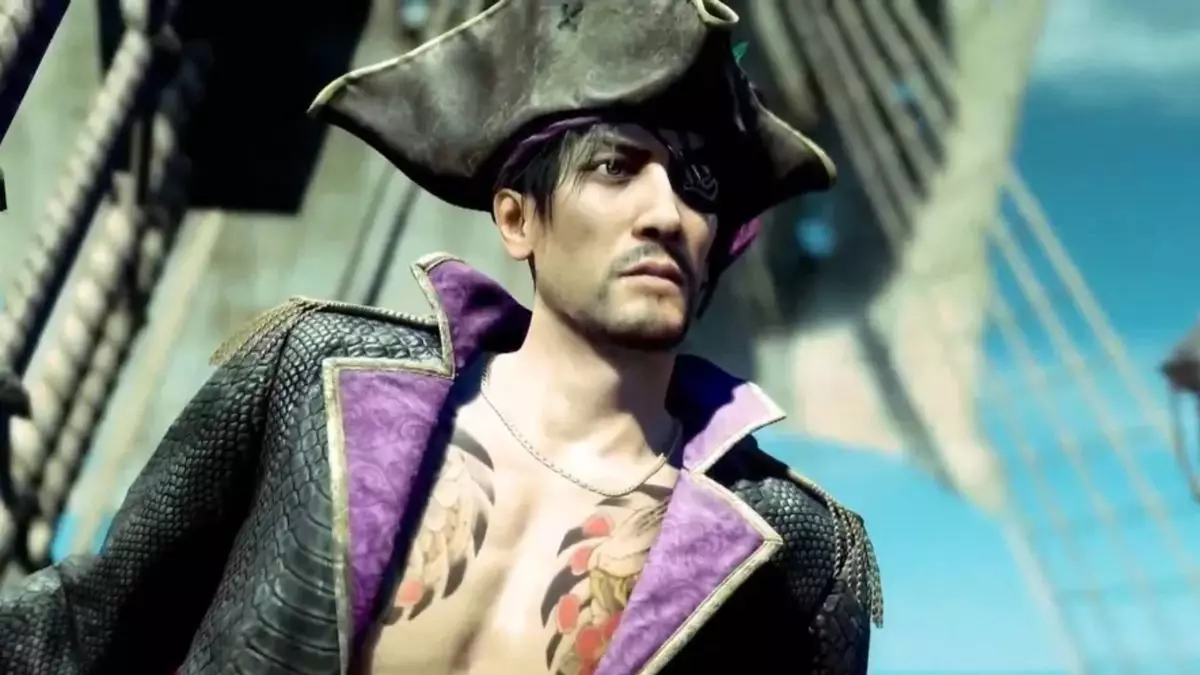In the dynamic landscape of video game development, RGG Studio has emerged as a powerhouse that defies conventional timelines. They consistently deliver new entries in the Yakuza franchise, captivating avid gamers with their engaging storytelling and immersive gameplay. The latest announcement of “Like A Dragon: Pirate Yakuza in Hawaii” marks the sixth game released within a mere five years, a feat that is becoming increasingly rare in an industry where major sequels often require extensive development periods. This swift pace suggests not just a deep understanding of their narrative and world but also a commitment to their fanbase that is seldom seen today.
The upcoming title is scheduled for release next February, arriving shortly after “Like A Dragon: Infinite Wealth,” which adds to a growing roster of games that have kept fans eagerly engaged. This new installation will maintain elements familiar to players, showcasing the series’ dedication to continuity. Developer Masayoshi Yokoyama himself has remarked on the advantages of this iterative approach, where the core aspects of gameplay are preserved while innovating incrementally. In a world where many franchises feel the pressure to start anew with each installment, Yakuza’s strategy is refreshingly distinct.
The gaming community has taken notice of RGG’s approach, with figures such as Baldur’s Gate 3 director Michael Douse commending their “genius” methodology. His observations of the “fractal design” behind the Yakuza games draw attention to the studio’s ability to sustain its foundational mechanics while integrating fresh ideas. This dual strategy not only conserves development resources but also fosters a heightened loyalty among fans, many of whom appreciate the consistent quality and familiarity in gameplay. Douse’s critique of the industry’s shift away from annual releases underscores the unique position RGG occupies in the gaming world.
In stark contrast to franchises like Grand Theft Auto or Assassin’s Creed, which rely heavily on constant reinvention, Yakuza continually builds upon its established assets. From returning locations to classic mini-games, RGG’s reuse of resources highlights a clever design philosophy. The model not only caters to the most enthusiastic fans but also makes the creative process sustainable over time. For instance, “Pirate Yakuza in Hawaii” will utilize locales introduced in “Infinite Wealth,” while simultaneously introducing a new jump mechanic—an intriguing twist that could enhance gameplay.
As anticipation builds for the release of “Like A Dragon: Pirate Yakuza in Hawaii,” it becomes apparent that RGG Studio’s model may offer vital insights for the broader industry. In an era where developers are grappling with ever-increasing expectations, Yakuza acts as a beacon of consistency and engagement. By continuing to refine their formulas rather than overhauling them, RGG Studio not only keeps their fanbase satisfied but also sets a standard that would be wise for other franchises to consider. With resilience and creativity, the Yakuza series demonstrates how honoring one’s heritage can be just as revolutionary as the boldest of innovations.


Leave a Reply